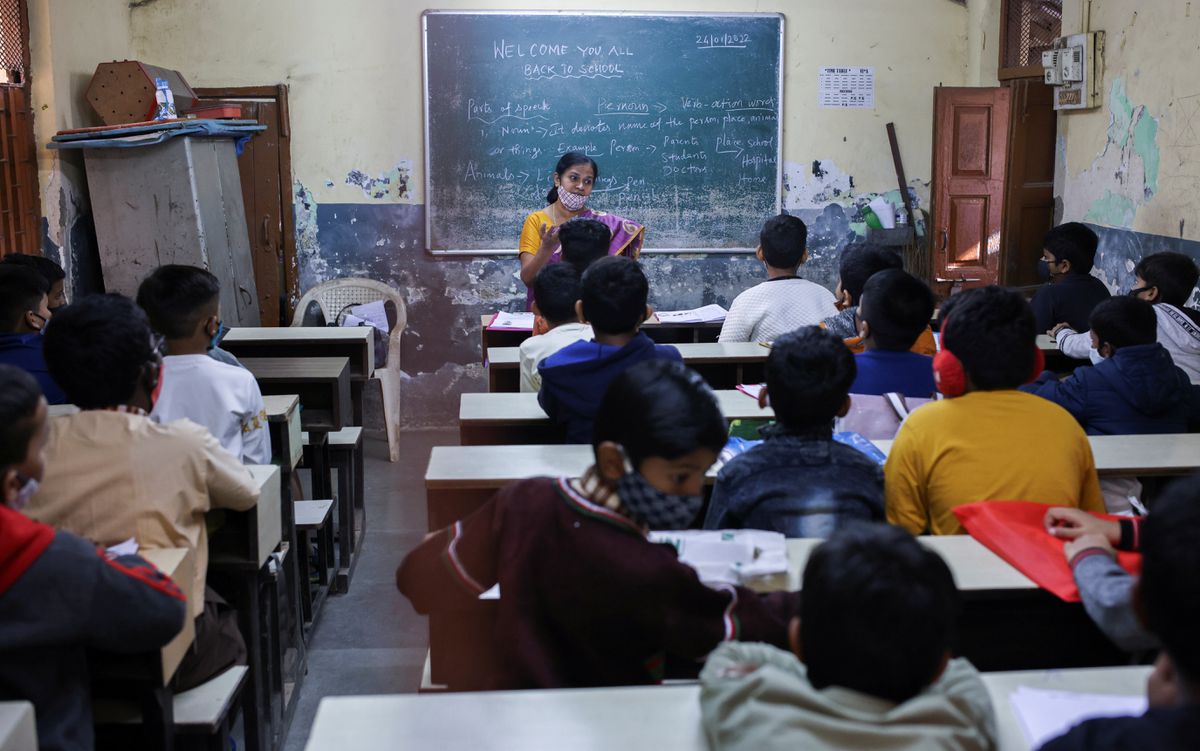Evolutionary biologist Richard Dawkins criticises the God of the Old Testament for carefully engineering conditions that lead people to violate the very first of the ten commandments – thou shalt not worship any other gods – and then eventually punishes them for the violation.
In India, teachers have mostly been godlike in this context, primarily for conditioning students to plagiarise, to the extent of making it a habit during primary and secondary education, and then eventually punishing them for it, mostly at the stage of tertiary education.
In order to counter the problem of plagiarism, or the practice of verbatim copying, which leads to wrongful ownership of what is copied, it is important to understand where this habit comes from.
To the primary and secondary level school teacher, anything reproduced verbatim from the textbook is either a treat to the eyes, or music to the ears. The student in turn, earns a reward, in the form of higher grades. She then associates this reward to the ability to reproduce text-bookish language down to the last detail, and therefore, hones this habit.
Here, the student is only naturally responding to a system of reward put in place by the teacher. She does not realise that the act of simply reproducing text-bookish language has an almost simultaneous side-effect – the habit of copying. In such a system, a lack of acknowledgement to the original source very subtly becomes the norm, often to the extent that we even fail to see that something is obviously wrong.
The habit of mechanically copying is not the only consequence. The need to copy verbatim equates textbooks to the ‘word of god’, which must not be questioned. Questioning and improvising is seen as a deviation from the norm – one that isn’t rewarded.
In addition, there are pressures that create competition and comparison; pressures that haven’t been matched by a proper education infrastructure like more educational institutes, laboratories, libraries etc. Then, it is just a matter of whose performance is marginally closer to perfection – and here, textbooks serve as godly standards. Copying, therefore, becomes a dominant norm, deviating from which has serious consequences.
Also read: Plagiarism Row: HC Bars 3 Historians From Publishing ‘Defamatory’ Material on Vikram Sampath
Finally, after close to a decade and a half of schooling within a culture that harbours the habit of copying, when a student reaches tertiary education, she is reprimanded for plagiarism.
We teachers punish students for being culturally conditioned – a culture of education that we have ourselves created for them that inhibits their capacity for critical thinking.
Therefore, when students reach degree colleges, there is no merit in pointing out that the authors of textbooks are also human, who can make errors. The most serious consequence of copying is that it discourages independent thought and can kill the very curiosity that enriches the process of obtaining education.
For instance, Euclidean geometry taught in schools almost always leads students to believe that parallel lines can never intersect, and students who pursue mathematics and sciences at the tertiary levels see those beliefs challenged in the geometry of curved spaces.
A culture of education is more fruitful when students exercise the freedom to question and contest what they read in textbooks, possibly creating valuable new knowledge in the process, instead of producing facsimiles of printed textbook material during their examinations. Correcting the effects of this decade-long conditioning may need more than a couple of years in tertiary education – and certainly more than a few orientation workshops on plagiarism (they say, old habits die hard!).
Of course, copying isn’t always bad – children do benefit from carefully mimicking their parents when they learn how to cross roads with moving traffic (following instructions is important to those who cannot (still) think for themselves).
We must understand that students can learn a great deal from their experiences when they remain curious and are encouraged to explore everything for themselves. As a first step, we teachers need to recognise and admit our own role in permeating the culture of plagiarism instead of penalising our students for it. As a second step, it is our duty to teach our students that plagiarism is equivalent to stealing – an action that children recognise as bad even at an impressionable age. We educators clearly do not have the right to be angry. At the end, we are teachers, and that itself makes anger a luxury we cannot afford!
Priyanka Kothari is an economist, working with Mumbai School of Economics and Public Policy, University of Mumbai. Subrato Banerjee is also an economist, working with the Indian Institute of Technology – Bombay.
Featured image: Students attend class in a school after they reopened amidst the spread of the coronavirus disease (COVID-19) pandemic in Mumbai, January 24, 2022. Photo: Reuters/Francis Mascarenhas

